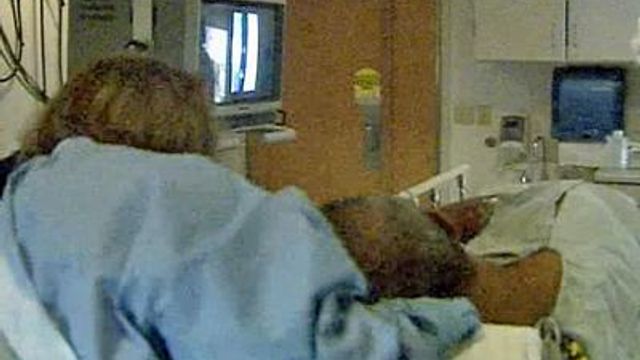Screenings Can Prevent Colon Cancer
Colon cancer is the third most common cancer in the United States – and the second leading cause of cancer deaths. The best prevention is screening, for both obvious and more hidden dangers.
Posted — UpdatedColon cancer is the third-most-common cancer in the United States – and the second-leading cause of cancer deaths. The best prevention is screening, for both obvious and more obscure dangers.
Strong laxatives, taken a day before a colonoscopy, clean out the colon and help gastroenterologists find and remove pre-cancerous growths called polyps. Most of those growths are easily seen – but not one type called flat polyps.
"And these flat polyps are very difficult to detect," gastroenterologist Dr. Juliana Miller said. "They're more likely to turn into cancer, and they're more likely to turn into cancer at a smaller size than other polyps."
Flat polyps hug tightly to the wall of the colon, and most can be removed with biopsy forceps during a colonoscopy if they're seen.
Certain long, flat polyps can only be removed with surgery and, without trained eyes looking for them, might be missed entirely.
Flat polyps are more common in this country and more dangerous than once thought, according to a study published in the Journal of the American Medical Association.
"That research is a real eye-opener for gastroenterologists that we need to do very thorough and careful colonoscopies," Miller said. "And it's also an indication that we need better techniques to detect these polyps and to treat them (and) to remove them."
Patients also need to use the required laxative before their screening to make sure there is no waste left in the bowel that might hide polyps.
Doctors recommended that everyone have a colonoscopy by age 50. Those with a family history of colorectal cancer should talk to their doctor about having a screening earlier.
Remember, it is OK to ask your doctors questions to make sure they take their time to look carefully for flat polyps.
• Credits
Copyright 2024 by Capitol Broadcasting Company. All rights reserved. This material may not be published, broadcast, rewritten or redistributed.





